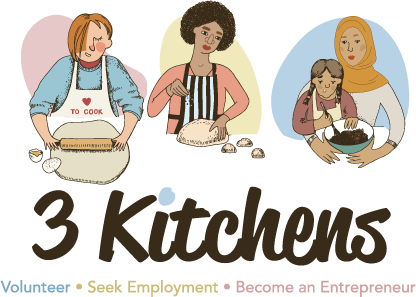Through the daily work of our partners, we know migrant women are particularly hard to engage in education. But a kitchen is a less daunting step. Our motivations are supported by evidence and statistics, highlighting the need for such an initiative:
- Economic Empowerment: Female migrants often face higher unemployment rates than their male counterparts. According to Eurostat data from 2020, the unemployment rate for female migrants (non-EU citizens) in the European Union was 15.5%, compared to 12.2% for male migrants. By providing training and support in the food industry, the project aims to reduce these disparities and promote economic independence for female migrants.
- Promoting Gender Equality: According to a 2021 UN Women report, migrant women are more likely to be in vulnerable employment and face gender-specific barriers. By targeting female migrants, the project addresses these inequalities and contributes to the United Nations’ Sustainable Development Goal 5 (Gender Equality).
- Encouraging Sustainable Practices: The Intergovernmental Panel on Climate Change (IPCC) emphasises the need for sustainable practices in various sectors, including the food industry, to mitigate climate change. The project’s focus on environmental consciousness and sustainable practices aligns with these global goals.
- Social and Cultural Integration: A study by the Migration Policy Institute (MPI) indicates that the successful integration of migrants into the host society is crucial for social cohesion and economic growth.
- Building Confidence and Self-esteem: The European Commission’s study on the integration of women refugees highlights the importance of building self-esteem and confidence for successful integration. The project’s focus on skills development and personal growth can help female migrants overcome feelings of isolation and disempowerment.
- Community Engagement: A study by the International Organization for Migration (IOM) suggests that community engagement is essential for successful integration. The 3 Kitchens project encourages local populations to participate and support volunteering, employment or business start actions by migrant women fostering a sense of belonging and shared responsibility.
